In today’s world of sustainability-minded travelers, third-party Eco Certified Hotels ASEAN is the gold standard. These certifications ensure that a hotel’s claims about being green are backed by measurable, independent assessments. In a region as ecologically diverse as Southeast Asia, eco-certified hotels play a crucial role in protecting the environment while offering travelers guilt-free luxury.

🔖 Understanding the Certifications
- Green Globe
- Focus: Hospitality, tourism
- Region: Global
- Used By: Banyan Tree, Anantara
- EarthCheck
- Focus: Energy, water, carbon
- Region: Asia-Pacific
- Used By: Alila, Soneva
- LEED
- Focus: Building construction
- Region: Global
- Used By: Marriott, Sheraton
- EDGE
- Focus: Energy & water efficiency
- Region: Emerging markets
- Used By: IFC/World Bank projects
- GSTC
- Focus: Tourism sustainability
- Region: Global
- Used By: Standards across all travel sectors
These standards cover everything from energy and water conservation to waste reduction and support for local communities.
🏨 Top Eco Certified Hotels in ASEAN
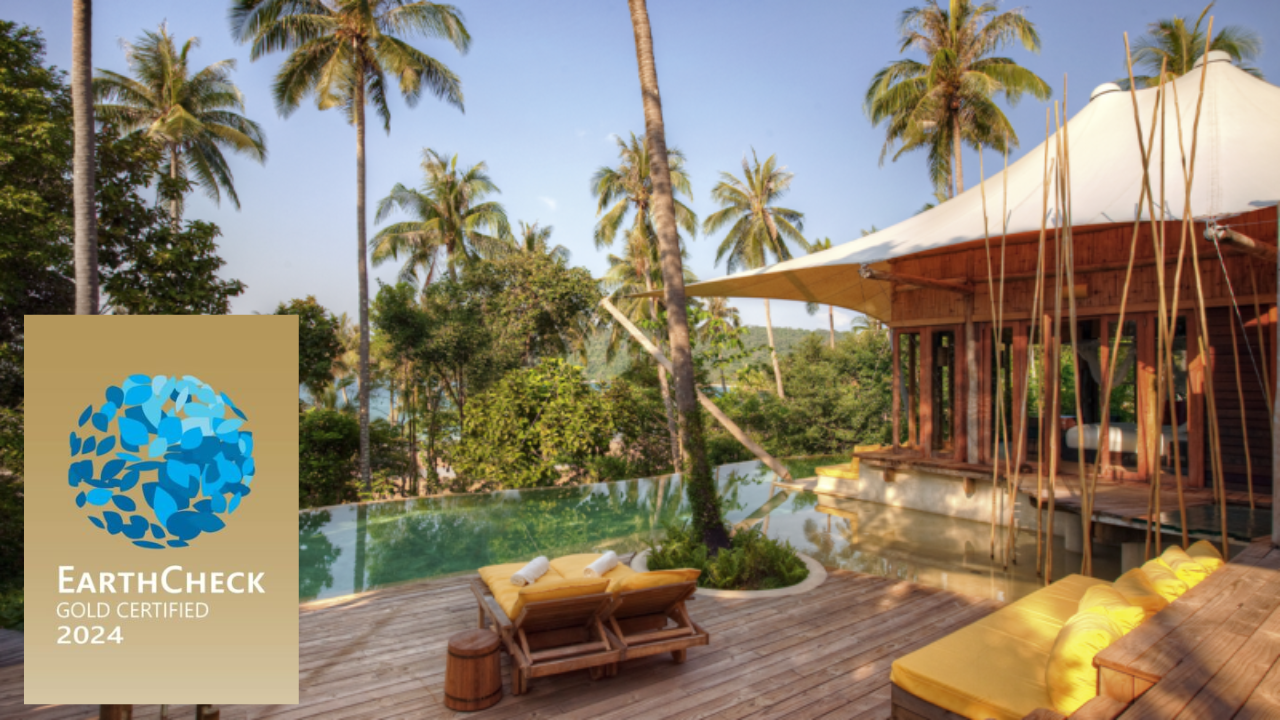
1. Soneva Kiri – Koh Kood, Thailand
Certification: EarthCheck Gold
Located on the unspoiled island of Koh Kood, Soneva Kiri combines ultra-luxury with eco-innovation. The resort generates its own solar power, harvests rainwater, composts food waste, and features a waste-to-wealth center. Guests receive detailed sustainability metrics tied to their stay and can participate in coral restoration, waste education, and jungle conservation programs.
🌱 Book a Climate-Positive Trip with Confidence
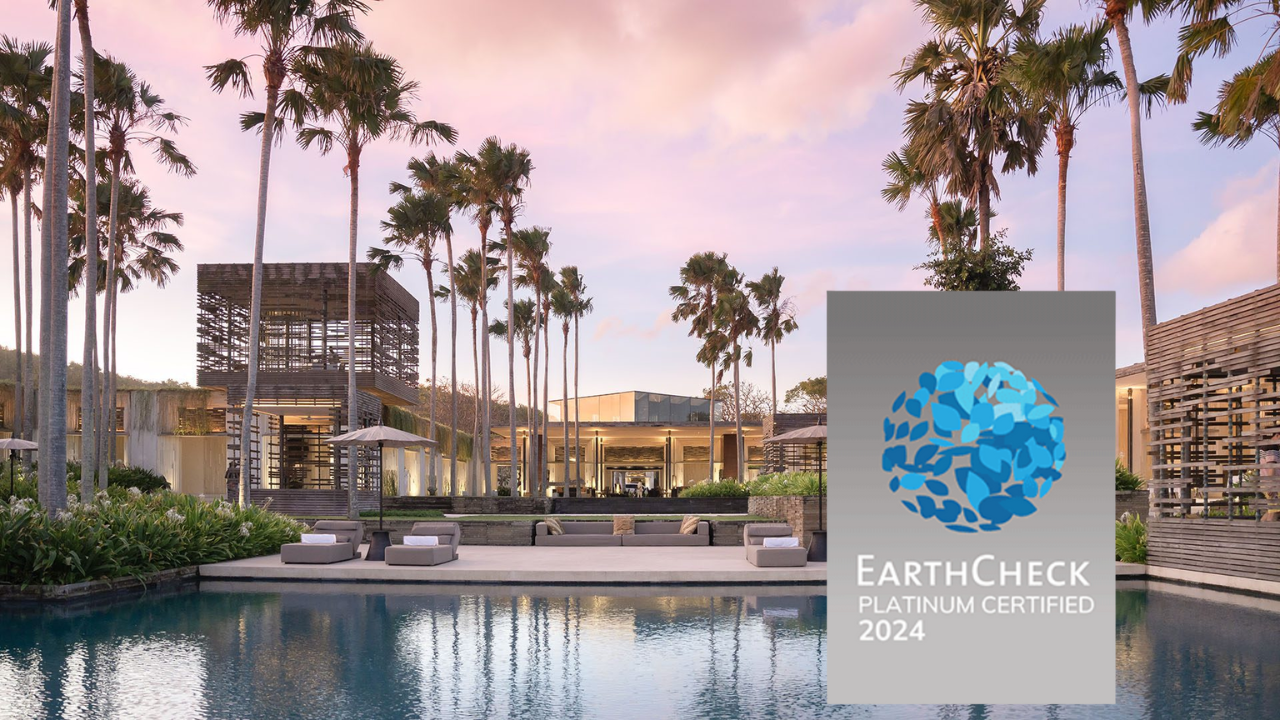
2. Alila Villas Uluwatu – Bali, Indonesia
Certification: EarthCheck Platinum
Alila Uluwatu leads Bali’s sustainable luxury scene, built using locally sourced recycled materials and certified low-impact design. The resort treats greywater for garden irrigation, captures rainwater, and has zero discharge to the local environment. It also runs community empowerment projects and artisan education programs with Balinese foundations.
🌱 Book a Climate-Positive Trip with Confidence
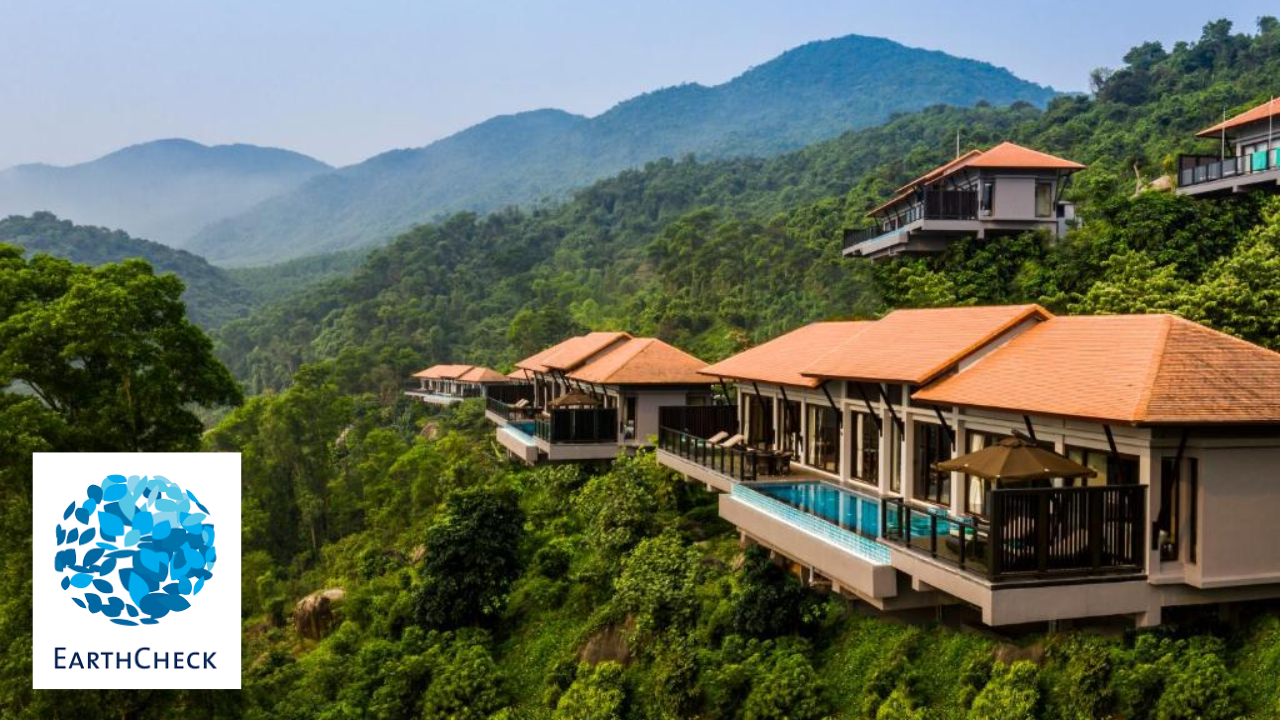
3. Banyan Tree Lang Co – Hue, Vietnam
Certification: EarthCheck Certified
Nestled between the Truong Son mountains and the East Sea, this resort is a gateway to three UNESCO heritage sites. It uses smart energy systems, organic waste composting, and marine conservation initiatives. Banyan Tree Lang Co also trains and employs ethnic minority groups, ensuring that tourism dollars support marginalized communities.
🌱 Book a Climate-Positive Trip with Confidence
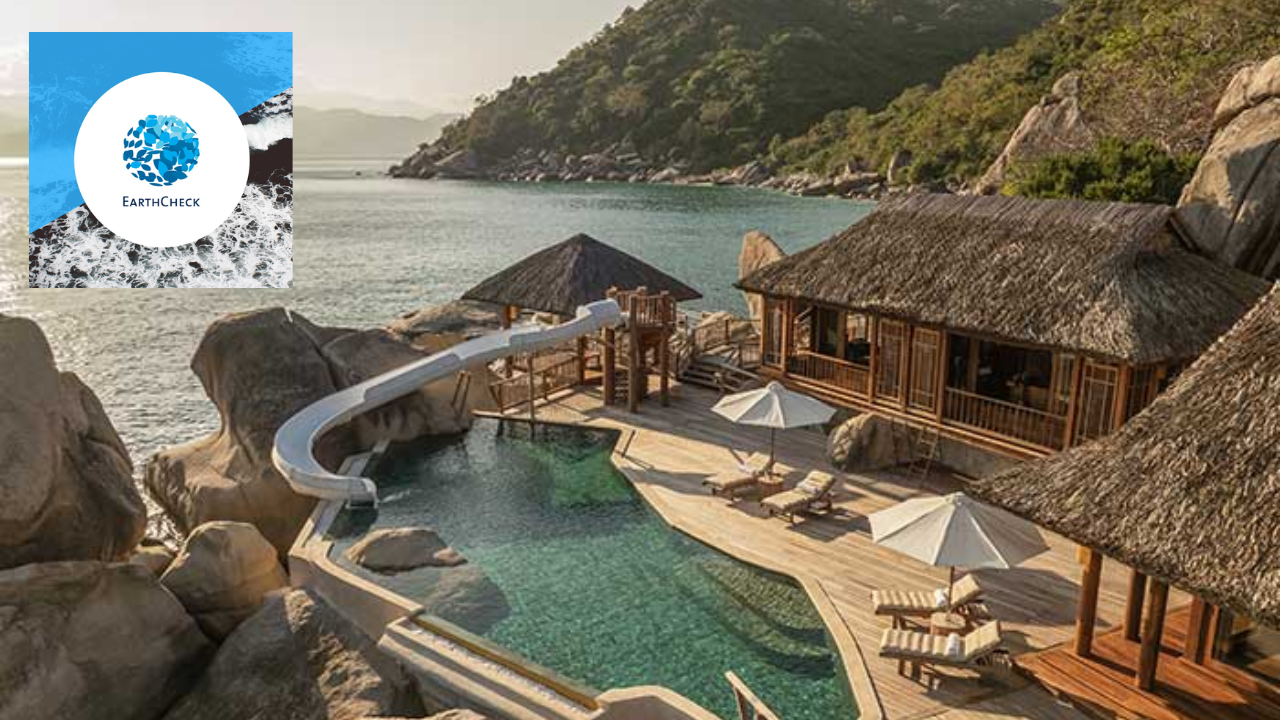
4. Six Senses Ninh Van Bay – Vietnam
Certification: EarthCheck Certified
This private bay retreat is famous for eco-conscious luxury. It uses solar energy, maintains organic gardens, and recycles all greywater onsite. Guests can visit its Earth Lab for education on sustainability practices like eco-bricking, biochar, and composting. The resort also manages reforestation and marine protection projects.
🌱 Book a Climate-Positive Trip with Confidence
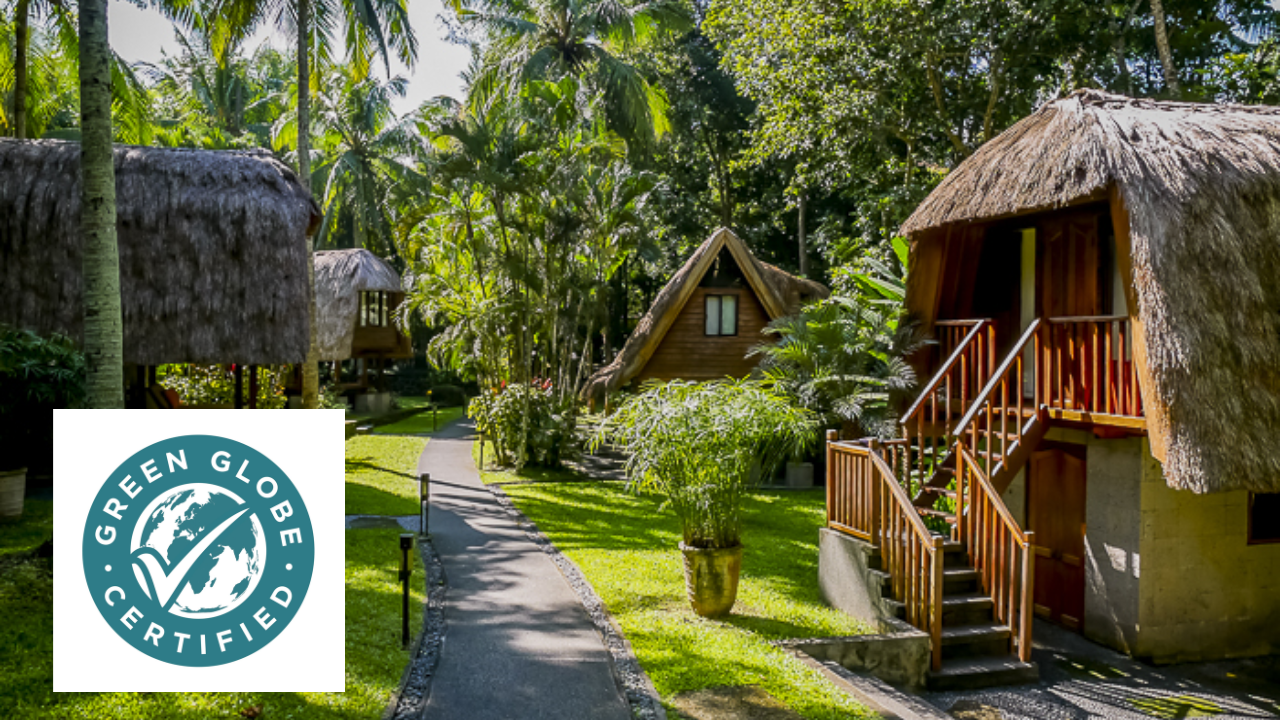
5. The Farm at San Benito – Batangas, Philippines
Certification: Green Globe Certified
This holistic wellness retreat focuses on health and environmental harmony. It produces 100% vegan meals from its organic farm, uses natural building materials, and applies water recycling and solar power throughout the resort. The Farm also offers environmental detox programs and wellness education for guests.
🌱 Book a Climate-Positive Trip with Confidence
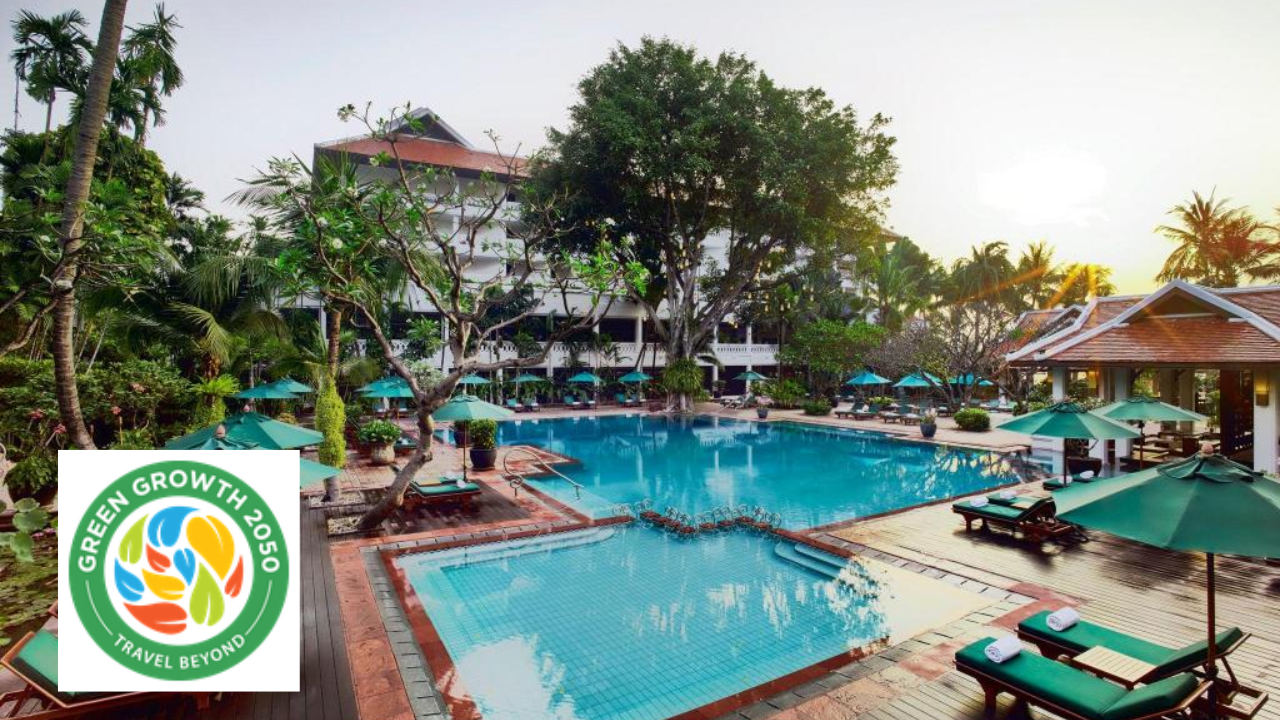
6. Anantara Riverside Bangkok Resort – Thailand
Certification: Green Growth 2050 / GSTC-Recognized
This riverside sanctuary is a leader in urban sustainability. It features energy-saving systems, solar water heating, and locally sourced building materials. Anantara runs community-supported agriculture projects, including a rice bank, and organizes regular clean-up campaigns on the Chao Phraya River.
🌱 Book a Climate-Positive Trip with Confidence
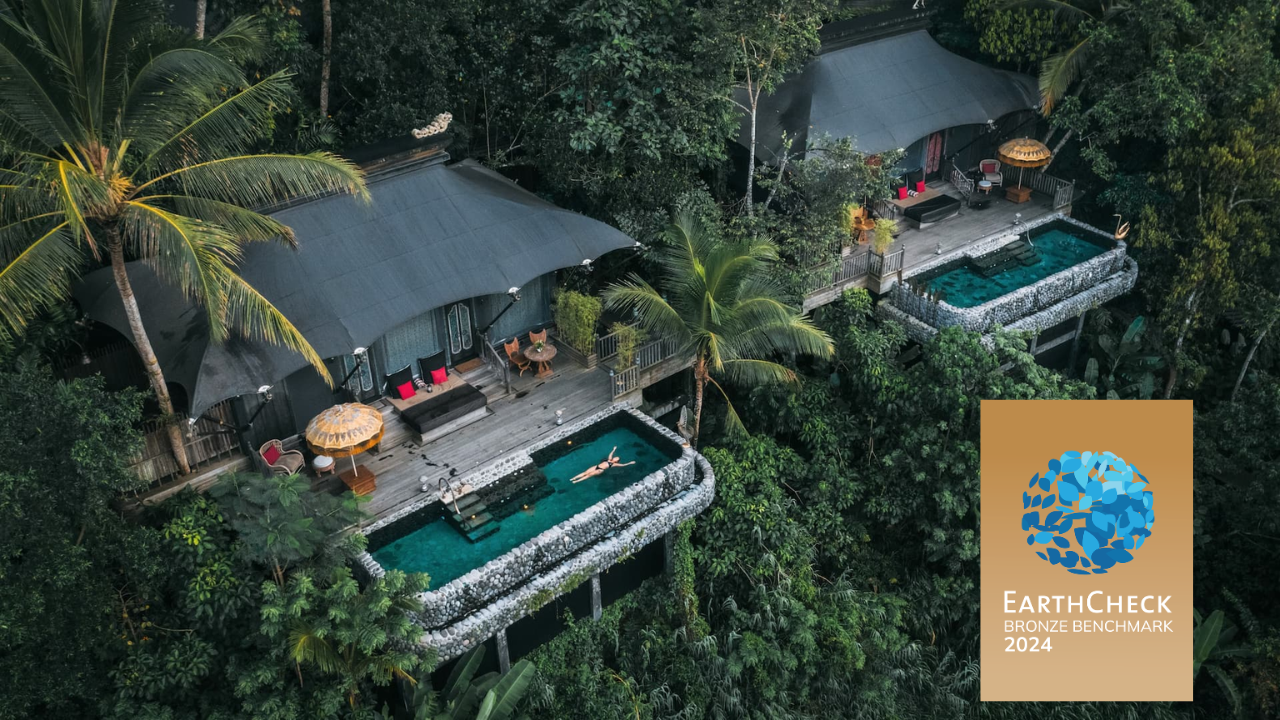
7. Capella Ubud – Bali, Indonesia
Certification: EarthCheck Bronze + GSTC-aligned
Capella Ubud is a jungle camp that avoids clearing land, ensuring a minimal ecological footprint. All water is sourced sustainably, waste is composted, and meals feature organic produce. Guests enjoy curated Balinese cultural experiences and sustainable food tours.
🌱 Book a Climate-Positive Trip with Confidence
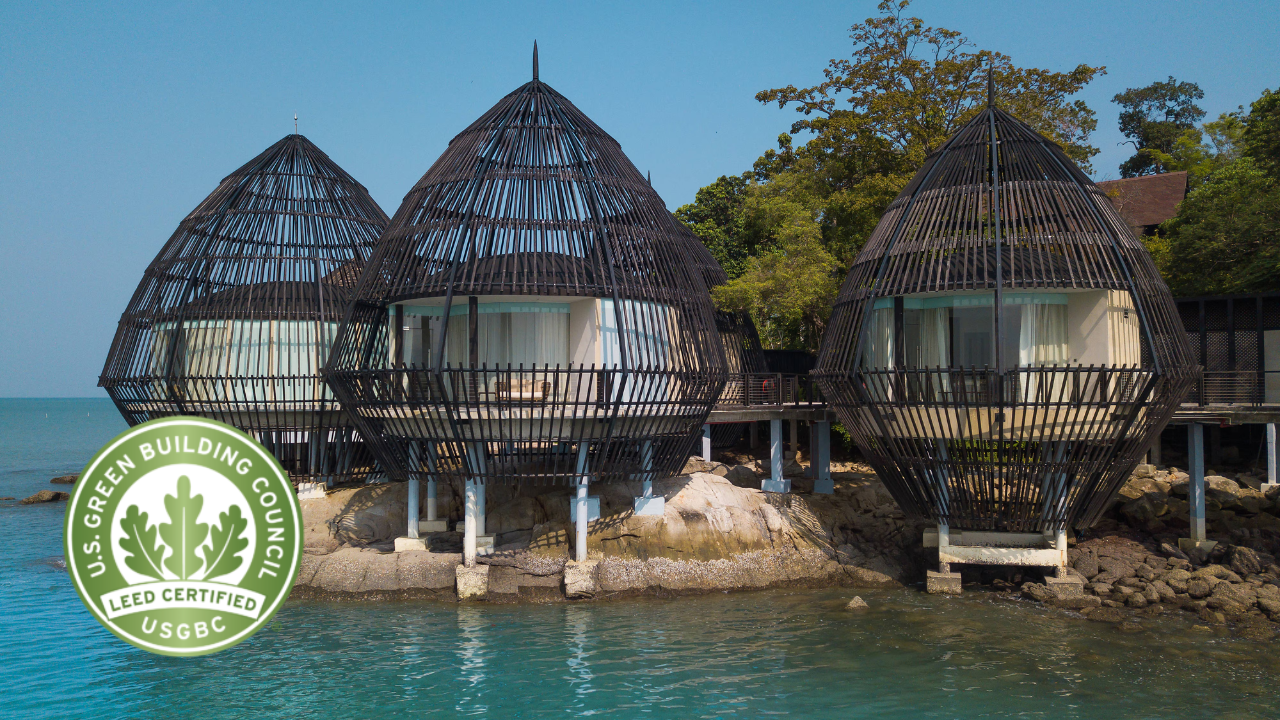
8. The Ritz-Carlton, Langkawi – Malaysia
Certification: LEED Certified
Located in an ancient rainforest, this resort combines luxury with ecological balance. It uses green roofs, solar panels, and passive cooling architecture. The Ritz-Carlton also collaborates with marine biologists to protect coral reefs and offers eco-themed children’s programs.
🌱 Book a Climate-Positive Trip with Confidence
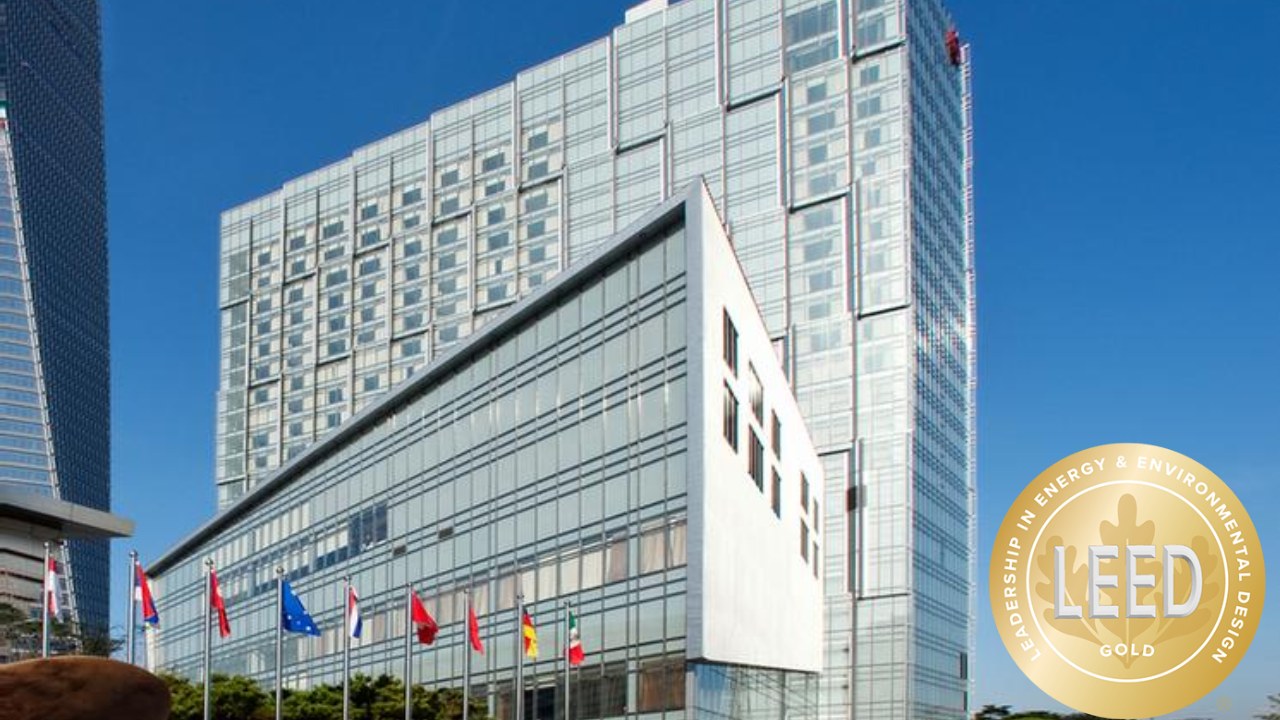
9. Sheraton Grand Incheon – South Korea
Certification: LEED Gold
This business hotel sets an example for sustainable urban development. It uses smart motion-detection lighting, low-flow fixtures, and heat recovery systems. The hotel regularly hosts environmental workshops and partners with local NGOs on green infrastructure.
🌱 Book a Climate-Positive Trip with Confidence
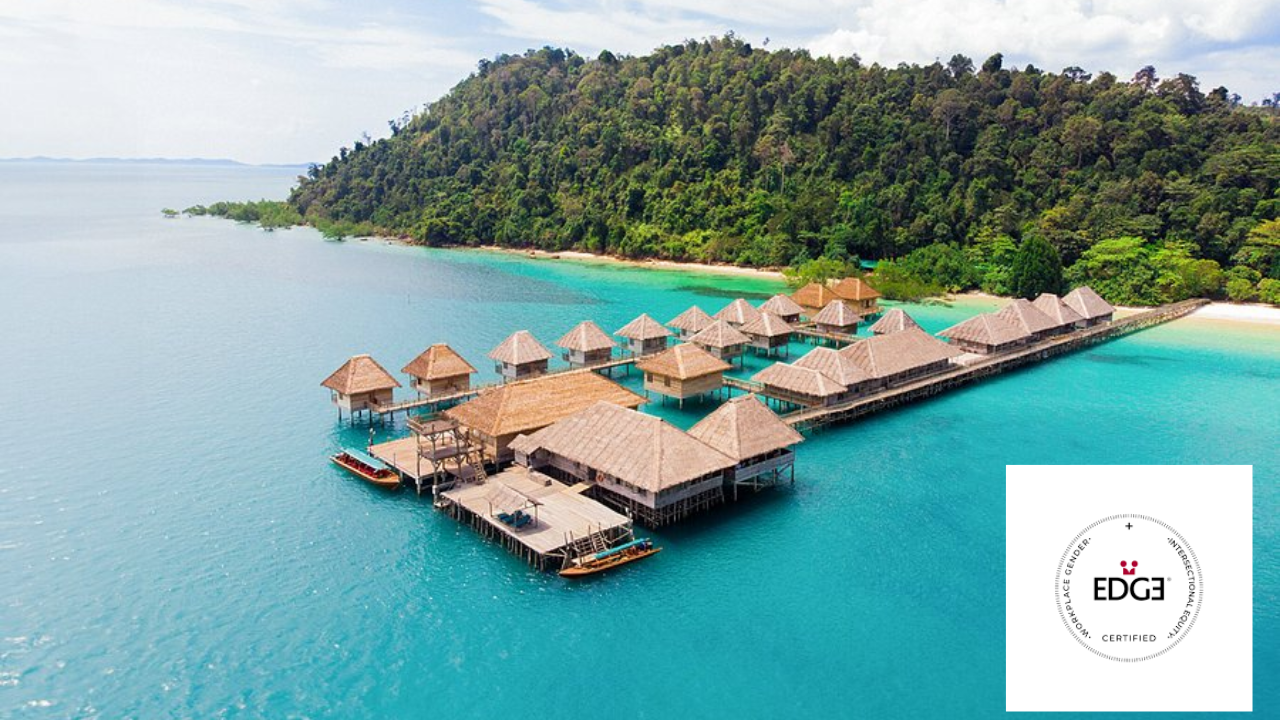
10. Telunas Resorts – Riau Islands, Indonesia
Certification: EDGE Certified
An off-grid island getaway built by local artisans using native wood. It features gravity-fed plumbing, solar lighting, and full rainwater harvesting systems. Telunas also runs a sustainability academy and village-based entrepreneurship programs.
🌎 Why Choose Eco-Certified Hotels?
- ✅ Verified impact: Real data, transparent audits
- ♻️ Sustainable systems: From water to waste to energy
- 🏠 Responsible luxury: Green without sacrificing comfort
- 💼 Local support: Cultural immersion and community upliftment
🌱 Book a Climate-Positive Trip with Confidence

💡 Final Thoughts: Proof Over Promises
Eco-certified hotels aren’t just trending—they’re leading. In an era of greenwashing, these properties offer verified trust. From mountain sanctuaries to riverside city escapes, the best eco-certified hotels in ASEAN ensure that your stay doesn’t cost the Earth.
Choose wisely. Travel consciously. Stay where it makes a difference.
Read this Article also: Top 10 Sustainable Hotels in Bali: The Best Green Stays for Eco-Conscious Travelers









